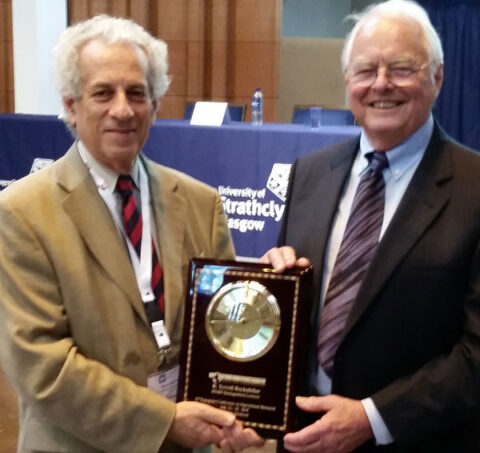R. Tyrrell Rockafellar
Title of Presentation: Risk and Reliability in Stochastic Optimization
27th European Conference on Operational Research
Glasgow, Scotland
July 2015
Abstract:
Problems of optimization are concerned with making decisions “optimally” however in many situations in management, finance and engineering, decisions have to be made without knowing fully how they will play out in the future. When the future is modeled probabilistically, this leads to stochastic optimization, yet the formulation of objectives and constraints can be far from obvious. A future cost or hazard variable may be a random variable which a present decision can influence to some extent, but maybe only in shaping its distribution in a limited way. For instance, it may be desirable to keep a hazard below a particular threshold, like building a bridge to resist earthquakes and floods, and yet it may be impossible or too expensive to guarantee that the threshold will never be breached.
One needs to have a standard according to which a cost or hazard is “adequately” below the desired threshold in line with its probability distribution. That is the role for so-called “measures of risk,” which started to be developed for purposes like assessing the solvency of banks but now are being utilized much more widely. Measures of risk also offer fresh ways of dealing with reliability constraints, such as have traditionally been imposed in engineering in terms of bounds on the probability of failure of various manufactured components. Probability of failure has troubling mathematical behaviour in an optimization environment. Now, though, there is a substitute, called buffered probability of failure, which makes better sense and is much easier to work with computationally.
Bio
R. Tyrrell Rockafellar completed his undergraduate work at Harvard in 1957, and his graduate work in 1963 at Harvard as well, after a two-year interruption with travel. His research interests span convex and variational analysis, with emphasis on applications to stochastic programming, optimal control, economics, Finance, and engineering.

